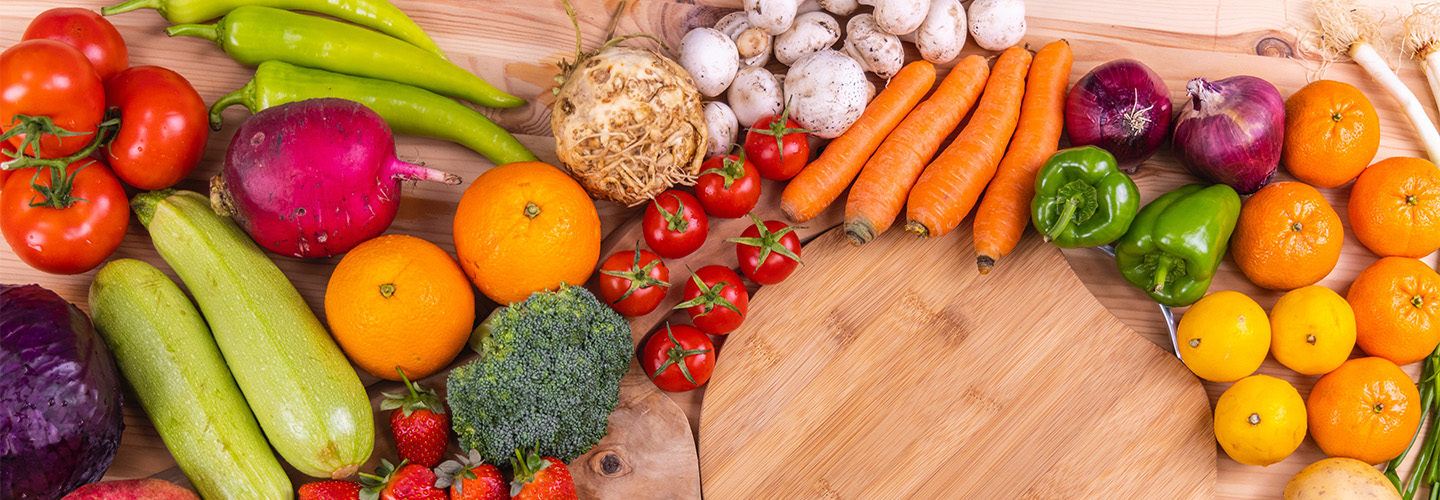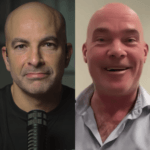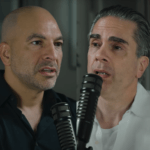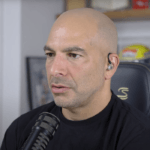In this “Ask Me Anything” (AMA) episode, Peter discusses the nutritional profiles of various fruits and vegetables as a means of assessing their relative value. He explains the difference between eating them vs. drinking them, how processing fruits and vegetables can change their properties, and how one’s current state of health affects nutrition strategy when it comes to fruits and vegetable consumption. Additionally, Peter explains the potential benefits and negative effects of certain phytochemicals found in produce and concludes with a discussion of supplementing with green powders, multivitamins, and more.
If you’re not a subscriber and listening on a podcast player, you’ll only be able to hear a preview of the AMA. If you’re a subscriber, you can now listen to this full episode on your private RSS feed or on our website at the AMA #36 show notes page. If you are not a subscriber, you can learn more about the subscriber benefits here.
We discuss:
- The limitations of nutritional data and challenges of making broad recommendations [2:00];
- How one’s current state of health impacts their “optimal” diet [11:30];
- Defining “metabolic health” [14:45];
- The wide-ranging nutrition profiles of various fruits and vegetables [16:30];
- The benefits of fiber [20:45];
- Eating whole fruits vs. drinking fruit juice or smoothies [22:30];
- Drinking alcohol: metabolic effects, calories in alcohol, and more [28:30];
- Can excess fruit consumption lead to insulin resistance? [30:30];
- Glycemic impact of different fruits, using CGM data to assist decision making, and how fruit is fundamentally different from what we evolved to eat [31:30];
- Dietary approaches for people with a carbohydrate tolerance disorder (TD2, NAFLD, etc.), and when it makes sense to restrict fruit consumption [34:30];
- Nutrition profile of select vegetables: sugar content, micronutrients, and more [40:00];
- Phytochemicals in produce: potential positive health impacts on inflammation, cardiovascular (CV) risk, and cancer [44:30];
- Phytochemicals with potential negative health impacts [50:45];
- Nightshades and inflammation [53:15];
- How important is it to eat organic foods? [56:00];
- How necessary is it to wash fruits and vegetables? [1:00:45];
- How does food preparation change the nutritional composition? [1:03:45];
- Considerations when eating canned and frozen food, and paying attention to processed food additives [1:04:45];
- Supplementing vitamins and nutrients as an alternative to eating whole fruits and vegetables [1:06:15];
- Green powder supplements [1:11:15];
- Important takeaways [1:16:00]; and
- More.
The limitations of nutritional data and challenges of making broad recommendations [2:00]
What we really know and don’t know:
- The following is true on average: People who eat more fruits and vegetables are healthier than people who don’t
- But if you really get into the details of this stuff, there’s far less that’s known than is represented as true
- That’s a broader concept that applies to nutrition in general
- And it speaks to why the nutrition chapter of Peter’s book has been “hands down posing the greatest difficulty”
- And it’s not because Peter has nothing to say, it’s because there’s less to say definitively than he would’ve said 5 or 10 years ago
- There are the obvious things:
- Too much food is bad
- Too little food is bad
- Too little protein is bad
- Certain micronutrients are essential
- Certain things are toxic
- After that, it starts to go from really clear, absolute knowledge to probable knowledge very quickly (And it does so quicker than it does with sleep, with exercise, and even with pharmaceuticals)
“And yet it’s the one area where I think people speak about things in more absolute terms than they do in anything else”
Why do people speak in absolute terms about nutrition despite the nuanced and complex reality?
- One explanation is that everyone on the planet has some “expertise” with nutrition because we eat food every single day
- By contrast, not everybody exercises every day
- But we’re conscious and we make deliberate choices when we eat every single day
“I think there’s also a very significant cultural and social component to this thing as well. So I think that’s where the tribalism comes from around nutrition.” —Peter Attia
On the flip side…
- It’s very difficult to acquire reliable knowledge in this space
- However, there are some really good scientists working on the mechanistic side of nutrition
- Such as people who are really under very tightly controlled conditions, elucidating some of the most interesting knowledge with respect to energy balance, with respect to appetite, with respect to fuel partitioning, food reward
- The problem is that it is nearly impossible to do this type of work in large sample sizes over long durations
- And you need large sample sizes and long durations to infer hard outcomes that we care about, which are prevalence of disease or incidence of disease and ultimately mortality
- So therefore to get insights on those topics, you have to rely almost without exception on epidemiology
- There are some reasonably well done, large clinical trials, but they require thousands of people and many, many years…And that means your interventions had better be very, very simple if you’re going to achieve compliance over that period of time.
All of this is to say…
- Nutrition is very hard and when we rely on epidemiology and we’re struggling to necessarily get it right in areas where the hazard ratios end up being quite small
- when you get hazard ratios like 1.19, it’s very difficult to know that you’ve captured and removed all of the biases that fed into that
People doing good work
- Kevin Hall is really doing some super interesting work
- Peter says Kevin is one of the most thoughtful people on the subject of energy balance
- This is an area where you can get answers to questions in months
- And you don’t need thousands of people, you can actually do these in tens of people provided you’re using very precise instrumentation
Questions that can’t really be answer quickly
Example: Are omega 6 polyunsaturated fats inherently healthy or harmful? (a very vexing question)
- Peter has seen pretty compelling evidence that omega 6 polyunsaturated fats as substituted for saturated fats could actually be viewed as harmful
- For example, looking at the initially unpublished data from the Minnesota Coronary Experiment that completed in 1973, but didn’t get published in its first rendition until 1989 and then wasn’t reexamined and republished much later
- If you look at those data, you could make a very compelling case that omega 6 polyunsaturated fats as substituted for saturated fats could actually be viewed as harmful
- But then you look at a whole bunch of other data and you might conclude that actually any harm associated with those fats is purely due to the confounders of what they track with, the seed oils that show up in low quality foods and junk foods
- In other words, it’s not the seed oil that’s the problem, it’s the junk food that’s the problem
- This example just speaks to the type of questions that have profound importance but it’s unclear as to the answer
How one’s current state of health impacts their “optimal” diet [11:30]
- The goal of the podcast today isn’t for listeners to be told what they can and can’t eat
- It is variable depending on your metabolic health diet, what you’re already eating
- The hope is for the listener to have a better understanding of the subject and to be able to apply that knowledge to their unique situation
Important point from Peter:
{end of show notes preview}






The washing device you remember is a “salad spinner”. I still have one, but my top use is removing moisture from a vegetable for a sauce, like eggplant for baba ganoush or cucumber for tsatsiki.
The Bionutrient Association is beginning to amass data that appears to be showing that not all carrots, apples, spinach leaves etc. are created equal. They’re starting to see that carrots grown in healthy soil have more nutrients than carrots grown in less healthy soil. From their preliminary data, healthy soil corresponds to the level of biological speciation and volume of organisms. The style of agriculture, specifically the way farmers treat their soil, seems to change the nutrient content dramatically. I appreciate comparing nutrient content from vegetable to vegetable for general information purposes. I think it is a helpful launching point. I also recognize accounting for provenance would confound such an exercise dramatically, but I think noting such work is important.
While not fruits or vegetables, it might have made sense to cover nuts too? Admittedly the evidence is not placebo-controlled double-blind etc., but not much in nutrition is.
Consider https://www.mdpi.com/2072-6643/13/8/2699 This is a 20-year prospective cohort study (better than retrospective, but certainly not the gold standard of placebo-controlled double-blind randomized studies) and it uses self-reported food questionnaires (not terribly accurate) but at least they updated them every four years (a lot of studies don’t do even that). On the downside, the research was funded by the California Walnut industry, so we don’t know how that influenced the result. But there was a dose-response relationship: “The hazard ratios for total mortality across categories of walnut intake (servings/week), as compared to non-consumers, were 0.95 (95% confidence interval (CI), 0.91, 0.98) for =5 servings/week (p for trend <0.0001). A greater life expectancy at age 60 (1.30 years in women and 1.26 years in men) was observed among those who consumed walnuts more than 5 servings/week compared to non-consumers."
In https://jamanetwork.com/journals/jamainternalmedicine/fullarticle/648593 they analyzed five factors that affected life expectancy of 34,192 people and for men found the difference between high risk and low risk behaviors: 2.74 y for high nut consumption, 2.74 y for high exercise, 1.53 y for vegetarian, 1.41 for medium tertile BMI, 1.25 y for never smoker. For women the numbers were 1.87, 1.88, 1.51, 2.25, 1.80 respectively (also 1.06 y for HRT). So nut consumption was on par with exercise! (CIs in article).
Seems like there is something in nuts. Fiber? Mg? Healthy fats?
Peter, Could you try to get us member discount on your Athletic Greens product
That was a good one, airplane analogy was a nice perspective.
Consumer Labs is a pay service that tests supplements, which I use. They tend to take the hype out of the product claims.
They once showed that many of the NMN type products, though wildly popular on Amazon reviews, contained little or none of the actual product, proving once again the power of the placebo effect.
I scrub an apple with an abrasive brush, easy and berries I rinse in hot water, also easy.
Might be a bit ‘off point’ but as a meat eater I would like to point out that an accepted and successful treatment for sailors who had scurvy was to give them fresh meat when they were in port. Limes were probably a cheaper alternative and easier to preserve.
In regards to the “1000mg of magnesium a day” – is that 1000mg of elemental magnesium? 400mg of magnesium oxide provides 240mg of elemental magnesium, so four tablets would provide 960mg.
Just a quick comment you should know: you cannot wash off all pesticides any longer, they are placed on the actual seeds of fruits and vegetables prior to planting so organic is truly the only way to go, period.
As a fourth generation family farmer, where your produce comes from is of utmost importance, even if it’s stamped organic. The rules aren’t necessarily streamlined in terms of domestic and imported produce. In our household the rule of thumb for purchasing produce goes like this… 1) domestic, 2) domestic organic, 3) imported organic, 4) imported. We live and farm in California so the bar set for us as producers is very high in terms of compliance with any and all safety.
Another very informative podcast. Thanks.
A couple of points. First, my NutritionData.com entry for sweet corn clocks in at 50 grams of carbohydrate and 5.6 grams of fiber for the 200 gram serving size. Chart here says 12.5 grams of carbs.
In regards to organic vs. conventional, I tend to choose organic (I can afford it) over conventional when shopping. The factor that is seldom mentioned in getting food to our tables, and the tie-breaker for me, is pesticide contamination, through groundwater infiltration, ag worker exposure, and surface runoff into water supplies. If a store offers both options, I go organic based on these factors.
I have 1 comment. You say the data is strong that exercise is the best way to maintain health. I’m always on the search for flavonoids that help increase heart health for those who can’t exercise. What supplements would best support them (muscle , heart and lung health) without active exercise.
I know that isn’t the main focus here but longevity is important for my boys with muscular dystrophy. Ways to decrease inflammation and keep the heart functioning as long as possible, for quality of life is something I’m very interested in.
Thank you for this info!
Enjoyed the podcast. But, I have to be a liitle snarky: It’s pretty clear that Peter hasn’t done much gardening. Tomatoes, eggplant, and peppers, to name a few of the plants in the family Solanacease all LOVE sun. Hot sun is the key to tasty tomatoes, etc. These plants, as well as tobacco and potatoes, are related to the plant that many of us were warned away from as children: Deadly Nightshade, the one with the purple flowers and green berries that turn red then finally dark purplish-black. (Note the green berries are the most toxic and have killed children)
When I tried to find the derivation of the name there is this entry in the Online Etymology Dictionary: “perhaps it is an allusion to the berries”
Final note: any diet that excludes these yummy vegetables would exclude me. Not eating fresh tomatoes right out of the garden would seem like an early death.